Disruption in the Legal Sector: How Technology Can Enable Educators, Students, Lawyers, and Judges Around the Globe to Stabilize the Sector and Provide Access to Justice

February 9-12, 15-18, 2021, via Zoom
The Institute for Global Understanding of Rule of Law at Bahçeşehir Üniversitesi (IGUL), in partnership with Atlanta’s John Marshall Law School and Mitchell Hamline School of Law, is hosting an international conference of legal educators, law students, lawyers, and judges. This conference is intended to bring together law students, law faculty, lawyers, and judges from around the world to discuss the future of legal education, the practice of law, and the judicial system. The Conference will be conducted virtually via Zoom.
Slightly more than a decade ago, Bahçeşehir Üniversitesi hosted the Law 2001: A Global Legal Odyssey conference which focused on “assuring quality legal education in the face of similarities, differences and rapid change.” Most recently IGUL hosted Legal Education and Lawyering in the Age of the “New Normal”. Disruption in the Legal Sector is a continuation of the dialogue begun in 2001 and a deeper exploration of the “New Normal”. It is envisioned that Disruption in the Legal Sector will bring together law faculty and law students from around the globe to explore the best pedagogies, curricula, and technology for preparing lawyers to practice in both global and domestic legal markets; lawyers from around the globe to explore how technology is impacting the practice of law; and judges from around the globe to explore how technology is impacting court systems, judges and access to justice. For several decades technology has been impacting the legal sector. The changes technology brought to the legal sector had been slow and methodical with individuals opting in to the use of technology. But, the impact of the global pandemic has changed the world we live in, including the legal sector from law school classroom to the courtroom. The global pandemic has forced the legal sector to embrace technologies that in the past would never have been considered, creating disruptions that are both positive and negative. This conference will explore those disruptions and the future they bring.
Schedule of Events
| DAY 1 | 2.09.2021 | Legal Education[1] |
| 10:00-10:30[2] 18.00-18.30 | Opening Session | Enver Yücel, Chairman of the Executive Board of Bahçeşehir Uğur Educational Institutions Dr. Michael Markovitz, Chairman, Board of Directors of Atlanta’s John Marshall Law School Jace C. Gatewood, Dean and CEO of Atlanta’s John Marshall Law School Prof. Dr. Şirin Karadeniz, President of Bahçeşehir University Anthony Niedwiecki, President and Dean of Mitchell Hamline School of Law |
| 10:30-11:00 18.30-19.00 | Eric Hilgendorf | Keynote |
| 11:00-11:30 19.00-19.30 | Şirin Karadeniz | President, BAU |
| 11:30-12:00 19.30-20.00 | Hope Kentnor | Curriculum Development: How to Develop a Curriculum for a Hybrid or Online Course |
| 12:00-13:00 20.00-21.00 | Zülal Erdoğan, Aybike Ceren Kahveci, Zeynap Ülkü Kahveci, Oğuzhan Kumbaraci, Alp Emre Oktar, Doğa Taşpinar, and Rüveyda Varan | The Future of Legal Education Through the Lenses of Law Students |
| 13:00-13:30 21.00-21.30 | Professor Margaret Reuter and Professor Carwina Weng | Best Practices for Designing Equitable Synchronous and Asynchronous Blended Classes |
| 13:30-13:45 21.30-21.45 | Q & A | Moderator |
| 13:45-14:45 21.45-22.45 | Professor Steven Foster, Professor Melissa Hale, Professor Courtney Abbott Hill, Professor Nicole Lefton, John Mayer, Professor Laura Mott, and Dean Allie Robbins CALI | Closing the Law School Gap: A Collaborative Effort to Address Educational Inequities Through Free, Asynchronous Tools |
| 14:45-15:15 22.45-23.15 | Professor, Doctor Aydın Atılgan and Professor, Doctor, Rzadkowski | Towards A Transnational Curriculum? Reflections On Possibilities For Future Teaching in Legal Education |
| 15:15-15:45 23.15-23.45 | Idil Kula | An Overview of Legal Education: Needs of Underprivileged Groups and Some Proposals in the Light of COVID19 Digitization |
| 15:45-16:00 23.45-24.00 | Q & A | Moderator |
| DAY 2 | 2.10.2021 | Legal Education |
| 10:00-10:30 18.00-18.30 | William Adams (ABA) | Keynote |
| 10:30-11:00 18.30-19.00 | Professor Michele Pistone | Top Five Lessons Learned About Online Law Teaching and Learning from the Pandemic |
| 11:00-11:30 19.00-19.30 | Dean Reichi Lee | Toward Best Practices: Current Challenges and Solutions in Hybrid Online Education in U.S. Law Schools |
| 11:30-12:00 19.30-20.00 | Ryan Elder | No Panic During the Pandemic: The Story of How Mitchell Hamline School of Law Used Technology and Instructional Design Principles as Grounded Tools for its Plan for Remote Based Instruction |
| 12:00-12:30 20.00-20.30 | Q & A | Moderator |
| 12:30-13:00 20.30-21.00 | VS Krishna and Mitsu Parikh | Can Artificial Intelligence Replace Offline Lectures? A Detailed Analysis of AI and Its Future in Legal Education Sector |
| 13:00-13:30 21.00-21.30 | Bilge Can | Data Science in the Law: New Age of the Interpretation |
| 13:30-13:45 21.30-21.45 | Q & A | Moderator |
| 13:45-14:15 21.45-22.15 | Alev Ozeroglu | The Impact of the Use of Technology in the “New Normal” on Graduate Studies |
| 14:15-14:45 22.15-22.45 | Ozan Emin Halhalli and Rabia Şahan | From the Student Perspective, Deficiencies and Improvable Aspects of the Turkish-German Education and Training Models |
| 14:45-15:15 22.45-23.15 | Cemre Cise Kadioglu | Blockchain Dispute Resolution |
| 15:15-15:45 23.15-23.45 | Professor Ozge Varis | Virtual Era International Investment Dispute Settlement: Pre-COVID19 and Post-COVID19 (Access to Justice Topic) |
| 15:45-16:00 23.45-24.00 | Q & A | Moderator |
| DAY 3 | 2.11.2021 | Legal Education |
| 10:00-11:00 18.00 –19.00 | Professor Lindsay Ernst, Professor Catherine F. Klein, Professor Ulrich Stege, and Professor, Doctor Bharti Yadav | Virtual Law Clinics: Promoting Equal Justice During the Pandemic and Beyond – A Comparative Analyses of Practices in USA, Italy, Hong Kong, and India |
| 11:00-12:00 19.00-20.00 | Professor Nira Geevargis, Kristen Uhl Hulse, Peter Kempner, and Professor Marcia Levy | Supervision and Feedback in a Time of Remoteness: Best Practices for the Field and Academic Supervisor |
| 12:00-13:00 20.00-21.00 | Professor Lurene Contento, Professor Janet Dickson, and Professor Kimberly Holst | Teaching the Modes of Persuasion in an Online Skills Classroom |
| 13:00-13:30 21.00-21.30 | Professor Suparna Malempati | At the Core of Advocacy: Effectively Teaching Trial and Deposition Skills Online |
| 13:30-13:45 21.30-21.45 | Q & A | Moderator |
| 13:45-14:30 21.45-22.30 | John Mayer | Open Source Legal Education – Collaborative Instructional Design During and After the Pandemic |
| 14:30-15:30 22.30-23.30 | Professor David Brody, Professor Ian Collins, and Professor Tuğba Akdemir Kamali | The Yaşar University Legal English Center: A Response to the Challenges of Providing Legal English and English as a Medium of Instruction in Law Courses |
| 15:30-15:45 23.30-23.45 | Q & A | Moderator |
| DAY 4 | 2.12.2021 | Legal Education |
| 10:00-10:30 18.00-18.30 | Professor Jeffrey A. Van Detta | Teaching the CISG via Multi-National Online Platforms as Lingua Franca for Encouraging Comparative Law Competency and Deeper Introspection About National Law |
| 10:30-11:00 18.30-19.00 | Professor John Sonsteng | Teaching and Learning Law and Business: An Open Resource Tool |
| 11:00-11:30 19.00-19.30 | Professor Murat Can Pehlivanoğlu | Alternative (Online) Dispute Resolution in the Era of E-Platform Economy: The Internal Complaint-Handling Systems and Commercial Law |
| 11:30-12:00 19.30-20.00 | Professor Riza Küçükoğlu | Online Sports Law Education |
| 12:00-12:15 20.00-20.15 | Q & A | Moderator |
| 12:15-12:45 20.15-20.45 | Professor Kishore Dere | Thriving Academic Networks amidst COVID19 Pandemic Disruption |
| 12:45-13:15 20.45-21.15 | Professor Lisa Radtke Bliss, Professor Susan Brooks, and Professor Chaumtoli Huq | Creating Virtual Education Spaces to Support Equity, Inclusion, Belonging, and Wellbeing |
| 13:15-14:00 21.15-22.00 | Amanda Sonderlind and Anthony Varela | Leveraging Technology to Bring Students Together in Distance Education |
| 14:00-14:30 22.00-22:30 | Professor Ann Nowak | The Transnational Classroom: Creating an Online Community Across Borders |
| 14:30-15:00 22:30 –23:00 | Q & A | Moderator |
| DAY 5 | 2.15.2021 | Access to Justice |
| 10:00-10:30 18.00-18.30 | Linda Klein | Keynote |
| 10:30-11:15 18.30-19.15 | The Honorable Justice M. Imman Ali | Virtual Justice Delivery System – A Reality Due to COVID19 and Endeavors to Uphold the Rule of Law |
| 11:15-11:45 19.15-19.45 | Dr. Marina Matic Boskovic LLM and Dr. Marko Novakovic | Adaption of Judicial Systems to the Global Pandemic – A Short and Long-term Impact of COVID19 on Judicial Systems |
| 11:45-12:15 19.45-20.15 | Professor Mark Wojcik | COVID and the Courts: How Civil and Criminal Courts Adapted to the Pandemic |
| 12:15-12:45 20.15-20.45 | Professor Leanne Fuith | Lessons on Delivering Justice in a Post-COVID19 World |
| 12:45-13:00 20.45-21.00 | Q & A | Moderator |
| 13:00-13:30 21.00-21.30 | Professor Drew Simshaw | Access to AI Justice |
| 13:30-14:00 21.30-22.00 | Professor Larry Bridgesmith | Web 3.0 Access to Justice: The Future is (Almost) Here |
| 14:00-14:15 22.00-22.15 | Q & A | Moderator |
| 14:15-14:45 22.15-22.45 | Bennett Hirschhorn and Professor Lucy Jewel | Leveraging Low-Cost Technology to Build a Flourishing Low-Bono Law Practice |
| 14:45-15:15 22.45-23.15 | Professor Elizabeth Berenguer and K. Paul Johnson | Leveraging Technology to Develop a Client-Centered Practice |
| 15:15-15:30 23.15-23.30 | Q & A | Moderator |
| DAY 6 | 2.16.2021 | Turkish Speakers (Presentations will be in Turkish with translation to English) |
| 10:00-10:30 18.00-18.30 | Muhittin Özdemir | Keynote speaker, President of Justice Academy of Turkey |
| 10:30-11:00 18.30-19.00 | Mr. Enver Han and Ms. Burçin Han | Contributions of Internships and Vocational Trainings Organized by Bar Associations for Legal System The Jurist of the Future |
| 11:00-11:30 19.00-19.30 | Professor, Doctor Derin Atay | What Motivates Law School Students?: An Explanatory Study from Turkey |
| 11:30-12:00 19.30-20.00 | Badel Keskin | The Impact of Big Data on Law: Education and Legal Infringements |
| 12:00-12:15 20.00-20.15 | Q & A | Moderator |
| 12:15-12:45 20.15-20.45 | Professr Emre Kiyak | Hukuk Yargılamasında Ses ve Görüntü Aktarımıyla Duruşma Yapılmasının Olması Gereken Sınırları (The Necessary Limits of Holding a Hearing with Sound and Image Transmission in Civil Proceeding) |
| 12:45-13:15 20.45-21.15 | Sevda Bora Çinar | Dava Yönetimi ve Yapay Zeka) Case Management and Artificial Intelligence |
| 13:15-13:45 21.15-21.45 | Professor Muharrem Kiliç | Yapay Zeka Uygulamalarının Hukuk Mesleğine ve Hukuk Uygulamalarına Etkisine İlişkin Etik-Hukuki Araştırma (Ethicial-Juridical Inquiry Regarding the Effect of Artificial Intelligence Applications on Legal Profession and Legal Practices) |
| 13:45-14:00 21.45-22.00 | Q & A | Moderator |
| 14:00-14:30 22.00-22.30 | Elif Şeyda Oluklu | Pandemi Döneminde Tahkime Genel Bakış (An Overview of Arbitration in the Pandemic Era) |
| 14:30-15:00 22.30-23.00 | Dr. Nezahat Demiray | Çevrimiçi Sınıfta Türk Anayasa Hukuku: Değişen Yöntemler (Turkish Constitutional Law in the Online Classroom: Changing Methods) |
| 15:00-15:30 23.00-23.30 | Dr. Erman Eroğlu | Kıta Avrupası Hukuk Sisteminde Eğitim Görmüş Öğrencilerin Lisansüstü Eğitimlerinde Teamül (Ortak veya AngloAmerikan veya Anglosakson) Hukuku Sistemiyle Eğitim Görmelerinde Karşılaşılan Problemler (Problems Encountered by Civil Law System Graduate Students in their Higher Education in the Common Law System) |
| 15:30-15:45 23.30-23.45 | Q & A | Moderator |
| DAY 7 | 2.17.2021 | Legal Practice |
| 10:00-10:30 18.00-18.30 | Prof. Dr. Metin Feyzioğlu | Keynote |
| 10:30-11:00 18.30-19.00 | Professor Zachary Calo and Professor, Doctor Barry Solaiman | Alternative Dispute Revolution: Technology and ADR in the Middle East |
| 11:00-11:30 19.00-19.30 | Professor Mariam Atash | Reducing Costs of Legal Services through Creation of Competition Using Technology |
| 11:30-12:00 19.30-20.00 | Derya Durlu Gürzumar | What Impact Has Artificial Intelligence Had on Legal Education and Profession, the Practice of Law, and Access to Justice |
| 12:00-12:30 20.00-20.30 | Gary C. Norman | Lawyers with Disabilities: Artificial Intelligence and Technology Access – The Good, Bad, and Sinister |
| 12:30-13:00 20.30-21.00 | Professor Yonathan Arbel | Contracts in the Age of Intelligence Readers |
| 13:00-13:30 21.00-21.30 | Jacques Kabano | Cybersecurity and International Law: Are We Where We Should Be? |
| 13:30-13:45 21.30-21.45 | Q & A | Moderator |
| 13:45-14:15 21.45-22.15 | Betül Yakar | The Influence of Social Media Over the Decision-making Process |
| 14:15-14:45 22.15-22.45 | Dr. Cynthia Boyer | Artificial Intelligence, Bias, and Judicial Decision |
| 14:45-15:15 22.45-23.15 | Dr. Sharon Yadin | Regulation and the Pandemic |
| 15:15-15:45 23.15-23.45 | Q & A | Moderator |
| DAY 8 | 2.18.2021 | Tech Literacy and Bar Admission |
| 10:00-10:30 18.00-18.30 | Professor Kathleen M. Burch | Tech Literacy: a Minimum Competency to Practice Law |
| 10:30-11:00 18.30-19.00 | Professor Karen Sanner | The Future of Law Practice: Preparing Tech-Competent Lawyers |
| 11:00-11:30 19.00-19.30 | Dean Amy A. Emerson | How the Process of Building Legal Technology Develops Professional Agility in Law Students |
| 11:30-12:00 19.30-20.00 | Professor Dyane O’Leary | Preparing Today’s Remote Lawyer for Tomorrow’s Confidentiality Crisis |
| 12:00-12:15 20.00-20.15 | Q & A | Moderator |
| 12:15-12:45 20.15-20.45 | Professor Cathren Page | Are You Positive? Testing the Limits of Virtual Methods for Licensing Legal Counselors in the Age of Pandemic |
| 12:45-13:30 20.45-21.30 | Professor Christine Cerniglia | Creating First Responders: How the Disruption of the Pandemic Presents a Crossroads for Admission and Transformation for the Legal Profession to Finally Address Access to Justice Needs |
| 13:30-14:30 21.30-22.30 | Reporters | |
| 14:30-15:30 22.30-23.30 | Panel with All Participants | |
| 15:30-16:00 23.30-24.00 | Closing Session |
[1] Conference day titles are descriptive of the main topic of the day. Many presentations in each day discuss more than one topic, and many presentations could have been placed in more than one category.
[2] Time is shown using a 24 hour clock first in US Eastern Standard Time, then in Istanbul, Turkey Time. To convert to your local time, please use a time converter, such as https://www.timeanddate.com/worldclock/converter.html?iso=20201217T150000&p1=107&p2=25.
Keynote Speakers
February 9, 2021
10:30-11:00, 18:30-19:00
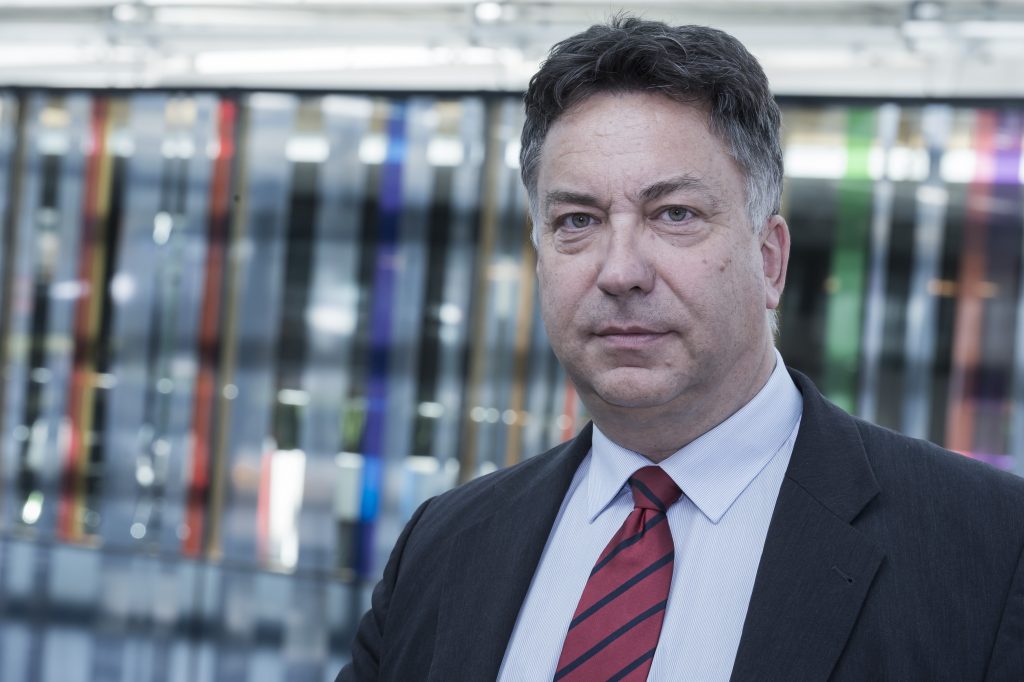
Prof. Dr. Dr. Eric Hilgendorf, Faculty of Law, Julius Maximilian University of Würzburg
Academic background: In 1990 doctorate (Dr. phil.) with a thesis on “Argumentation in Jurisprudence”, in 1992 doctorate (Dr. jur.) with a thesis on criminal producer liability, both at the University of Tübingen. 1997 Habilitation in the subjects of criminal law, criminal procedural law and philosophy of law with a thesis on legal theory and criminal law doctrine (“Tatsachenaussagen und Werturteile im Strafrecht”). Since 1997 Professor of Criminal Law at the University of Konstanz, 1999/2000 Dean of the Faculty, since 2001 Professor of Criminal Law, Criminal Procedure Law, Legal Theory, Information Law and Legal Informatics at the University of Würzburg. Chair of the Würzburg Research Center for Robot Law. 2009-2011 Dean of the Faculty.
Research: Numerous projects funded by third parties (EU, DFG, BMBF, BMWI, etc.) on IT criminal law and law and technology (including data protection law); participation in federal legislative procedures on IT (e.g. on the reform of computer criminal law in 2007 and on the reform of the StVG 2017); 2010 foundation of the Würzburg research Center “RobotRecht”; initiator and editor of the series “Robotik und Recht” (since 2013, together with Susanne Beck); legal director of the EU project “AdaptIVe” on new forms of mobility; expert of the Goslaer Verkehrsgerichtstag 2015 on legal questions of automated driving; Member of the “Round Table” on automated driving in the BMVI; member of the Ethics Committee of the BMVI on automated driving (“Dobrindt-Kommission”), there head of the subcommittee on the “dilemma problem”; member of the legal advisory board of the DVR; head of the working group on “Law and Ethics” in the “Platform Self-learning Systems” of the BMWI (2018/2019). 2018 Appointed member of the EU High Level Expert Group on Artificial Intelligence. Since 2019 Director at the Bavarian Research Institute for Digital Transformation (bidt), 2020 Member of the Bavarian AI Council. Many international activities in law and technology, especially with China, Japan, Korea and the USA.
February 10, 2021
10:00-10:30, 18:00-18:30
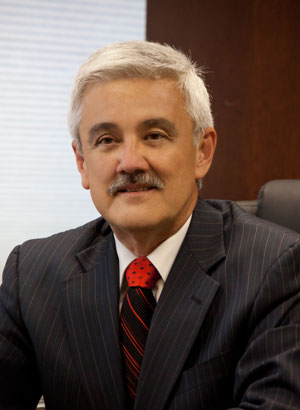
William E. Adams, Jr., Managing Director of the Center for Accreditation and Legal Education of the American Bar Association
The Council for the Section of Legal Education and Admissions to the Bar is the accrediting authority for the Juris Doctor Degree for American law schools recognized by the US Department of Education. The Council has gradually shifted its focus from “inputs” to outcomes in recent years with revisions to its bar passage requirements. It has also relaxed some of its limits on distance education. As all law schools offered increased distance education during the pandemic, it will study whether further modifications are in order.
Biography: William E. Adams, Jr. is managing director of the Center for Accreditation and Legal Education of the American Bar Association. He previously served as Deputy Director for nearly six years. He has additional legal education experience of nearly twenty-five years as a dean, associate dean, and professor of law at two law schools. Prior to this, he served as a legal services attorney for three different legal services organizations.
Bill is Past Chair of the Association of American Law Schools’ (AALS) Section on Aging and the Law, the AALS Section on Sexual Orientation and Gender Identify, and the Florida Bar’s Public Interest Law Section. He is the 1994 recipient of the Dan Bradley Award, the National LGBT Bar Association’s highest award for contributions to LGBTQ equality. He is a 1978 cum laude graduate of the Indiana University School of Law and received his AB in political science from Indiana University in 1975.
February 15, 2021
10:00-10:30, 18:00-18:30
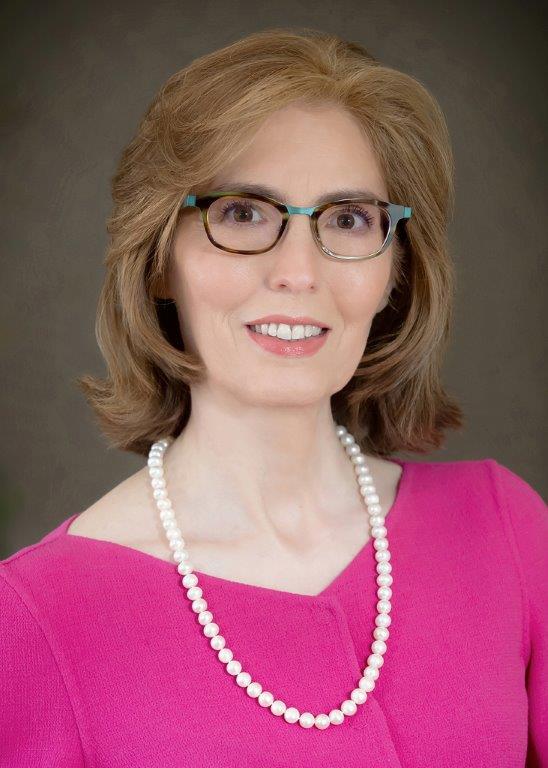
Linda Klein, Past President of the American Bar Association
Biography: Linda Klein is a past president of the American Bar Association and was the first woman to serve as president of the State Bar of Georgia. She is dedicated to increasing access to justice in the US and globally. As State Bar president, she led the effort for Georgia to become one of the first states in the US to fund civil legal services with tax dollars. In the ABA she championed access to justice for veterans. She previously served as chair of the ABA’s House of Delegates, the association’s policy making body and chair of ABA Day, the Association’s Congressional outreach effort, which lobbies for funding for indigent legal services.
Klein has delivered five law school commencement addresses, including at Atlanta’s John Marshall Law School in 2018. She has been honored with the Randolph Thrower Award for Lifetime Achievement in diversity and the Margaret Brent Woman Lawyer of Achievement Award, among many other awards. She has been chosen “Attorney of the Year” by the Daily Report and named one of the 100 most powerful and influential Georgians by Georgia Trend Magazine.
President Jimmy Carter appointed Ms. Klein to The Carter Center Board of Councilors for the 2019 – 2022 term. She also currently serves on the Board of Directors of the Metro Atlanta Chamber of Commerce and the executive committee of the Buckhead Coalition.
She has authored numerous published works. Her lecture schedule has included presentations in France, Poland, Sweden, Spain, Russia, Croatia, Japan, Great Britain and Canada, but most extensively in the southeast United States. She is a member of the American Law Institute, and a mediator and arbitrator, frequently serving as a neutral as well as a client advocate.
Ms. Klein’s law practice includes most types of business dispute prevention and resolution, internal investigations, contract law, professional liability, and risk and crisis management. She has worked extensively with clients in higher education and the construction industry.
February 16, 2021
10:00-10:30, 18:00-18:30
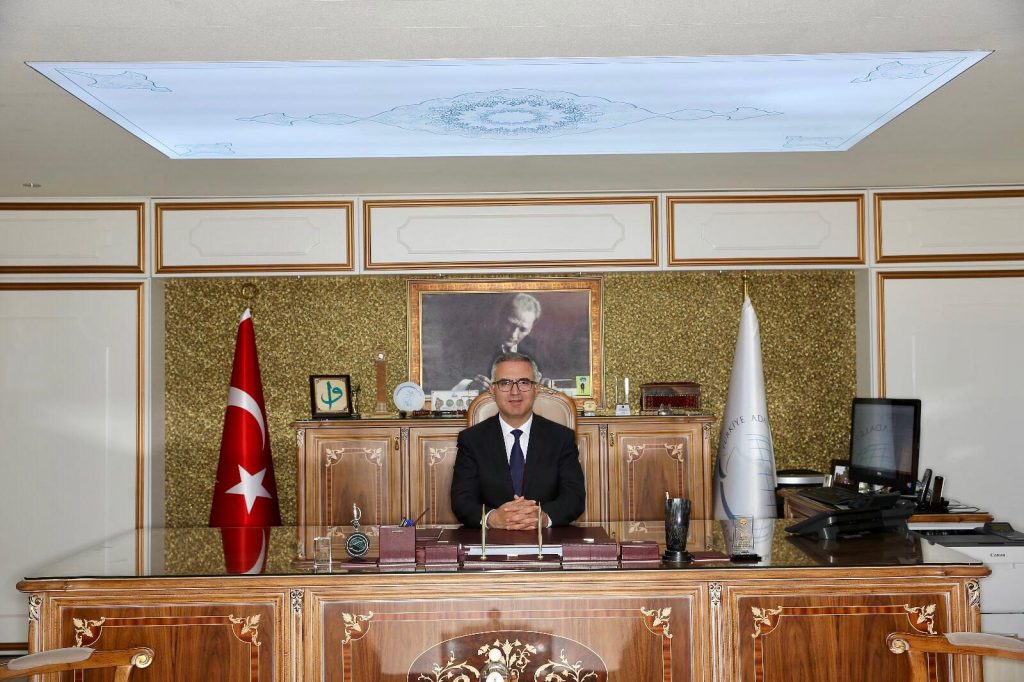
Muhittin Özdemir, Head of the Justice Academy of Turkey
He was born on April 20, 1975 in Niksar, Tokat. His father’s name is Eyyup and mother’s name is Fetiye. He completed his primary education in Musapınarı Village Primary School. He completed his secondary education in Tokat by winning the Free Public Boarding School exams. He graduated from Ankara University Faculty of Law in 1997. In 2007, he received his master’s degree from Selçuk University, Institute of Social Sciences.
He completed his attorney internship in Ankara Bar Association and got his lawyer license. In 1998, he passed the judicature exam held by ÖSYM for the first time and started his career as a candidate judge in Ankara Courthouse. He served as a judge in various courts in Yeşilhisar, Konya-Ereğli and Gaziantep courthouses on 19 May. In 2013, he was appointed to the Ministry of Justice General Directorate of Criminal Affairs as an rapporteur judge. Prepared by the Ministry of Justice Internal Audit Unit on 10 July 2013; after the report on “Victim Rights in the Criminal Justice System”, he was assigned to prepare a proposal and an organization report for solving the problems in the field of victims’ rights. After the report was prepared, “Victim Rights Department” was established with the approval of the Minister on 18 November 2013. He was appointed as Head of Victim Rights Department on 26 November 2013. As the founding president; He led the organization of many panels, symposiums, workshops and preparation of reports and legislation in the field of victims’ rights. He contributed to the establishment of two important institutions in the Turkish judicial system such as “Forensic Interview Rooms” and “Legal Support and Victim Services Department”.
He was appointed as the head of the Judges and Prosecutor Training Center on 03 March 2019.
Following the establishment of “Justice Academy of Turkey” with the Presidential Decree No. 34, he was assigned as Head of the Justice Academy of Turkey. Then in 24 October, 2019 he was appointed as Head of the Justice Academy of Turkey with the Presidential Decree No. 2019/367.
Mr. Özdemir is married and has two children.
February 17, 2021
10:00-10:30, 18:00-18:30

Prof. Metin Feyzioğlu, President of the Union of Turkish Bar Associations
He was born in 1969 in Istanbul. In 1990, he graduated from Ankara University Faculty of Law. In 1992, he completed his master’s degree in Ankara University Institute of Social Sciences, Public Law. He received the title of doctor in the field of Public Law in 1995. In 1996, he was appointed as an Assistant Professor in the field of Criminal Law at Ankara Law Faculty. He qualified for the title of Assistant Professor in 2000 and Professor in 2005. In 2007, he was elected as a Dean of Ankara University Faculty of Law. On October 10, 2012, He was elected President by taking 58 percent of the votes in the Ordinary General Assembly of Ankara Bar Association where he has been registered since 1991. In the 62nd Ordinary General Assembly of the Ankara Bar Association, he was elected as the President of the Ankara Bar Association for the second time by taking 60 percent of the votes. On May 26, 2013, he was elected as 8. President of Union of Turkish Bar Associations by taking 50 percent of the votes in the 32nd Ordinary General Assembly of Union of Turkish Bar Associations. On May 14, 2017, in the 33rd Ordinary General Assembly of the Union of Turkish Bar Associations, he was elected as the President of the Union of Turkish Bar Associations for the second time.
Sponsor University Leadership
Atlanta’s John Marshall Law School

Dr. Michael C. Markovitz, Ph.D., Chairman, Board of Directors
Dr. Michael C. Markovitz is past-Chairman of Argosy Education Group, Inc. He served in this capacity since his founding of that company in 1975. In 1999, Argosy became a publicly traded company listed on the NASDAQ, and was subsequently acquired in 2001.
Dr. Markovitz earned a B.S. (Honors) in Psychology from the City College of the City University of New York in 1971, and his Masters and Ph.D. degrees in Psychology from The University of Chicago in 1973 and 1975. In addition, Dr. Markovitz serves on the Governing Board of Yorkville University in New Brunswick, Canada, is a director of Eckerd College (St. Petersburg, Florida), and is a member of the Visiting Committee to the Division of Social Sciences, University of Chicago.
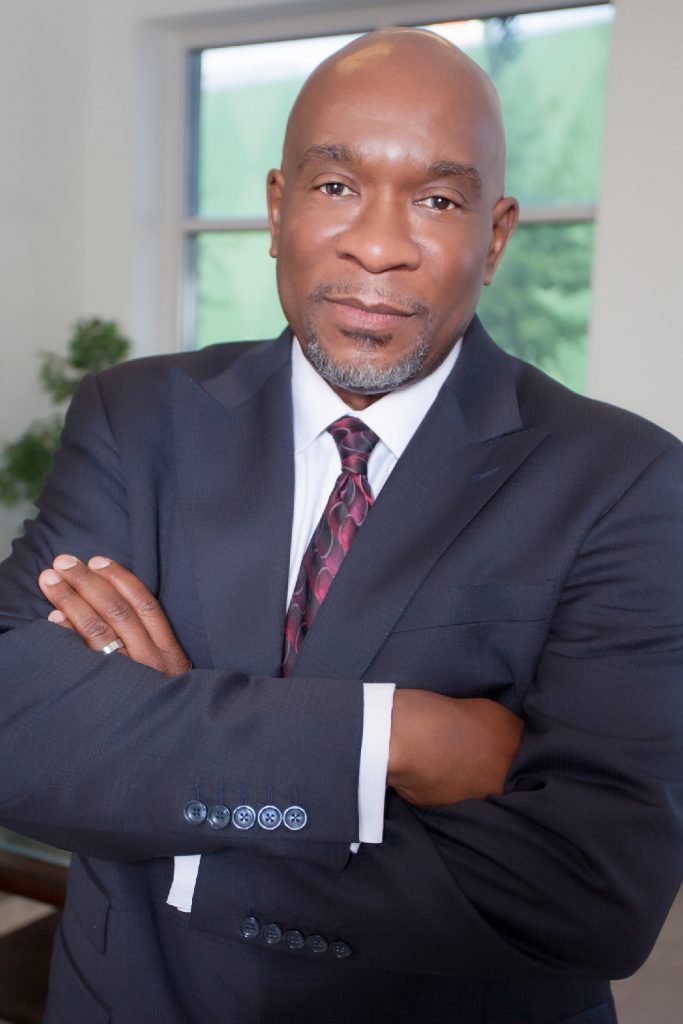
Jace C. Gatewood, Dean and CEO
As a member of both the New York and Georgia State bars, Dean Gatewood practiced for more than 18 years, specializing in a wide range of commercial, corporate and real estate transactions. During his private practice, Dean Gatewood was a partner and associate at Powell Goldstein LLP, where he represented a diverse group of corporate and institutional clients. He was also an associate with Troutman Sanders LLP and Weil Gotshal LLP in New York, and served as Assistant General Counsel for the Atlanta Housing Authority. In 2005, Dean Gatewood founded and was managing partner of his own private practice, where he practiced primarily in commercial lending and real estate law. A former member of the Board of Directors of the Business and Finance Law Section of the Atlanta Bar Association, Dean Gatewood joined the faculty of Atlanta’s John Marshall Law School in 2008. Dean Gatewood was named Associate Dean of Graduate Programs in 2016 and was additionally named Associate Dean of Academic Programs in 2017. Dean Gatewood was named Interim Dean and CEO of Atlanta’s John Marshall Law School in 2020.
Bahçeşehir Üniversitesi (IGUL)

Enver Yücel, Chairman
Enver Yücel, born in 1957, Giresun, Turkey, has devoted his life to providing educational services to students all over the world. He offers educational support by providing scholarships to thousands of students, and believes in the importance of global education for every student in the world. He feels that only through accessible and inclusive quality education can we bring peace to the world, and so considers the field of education to be a vital area of social responsibility.
Enver Yücel is the Chairman of the Executive Board of Bahçeşehir Uğur Educational Institutions, which incorporate Uğur Schools, Bahçeşehir Colleges, Bahçeşehir University, BAU International University Washington D.C., BAU International University Berlin, BAU International University Batumi, BAU International University Cyprus and many other educational institutions under the BAU Global brand, providing education to more than 200k students worldwide. Enver Yücel was awarded with the Superior Service Award by the Turkish Grand National Assembly in 2008 for his dedication to and continuous efforts in education. In 2014, he was granted the Contribution to Global Education award in the UNCA Awards hosted by the United Nations former Secretary General Ban Ki-moon. As the Chairman of Bahçeşehir University, he was awarded the Turkey’s 500 Biggest Exporters award in the field of education via the Turkish Exporters’ Assembly in 2018, and the Distinguished Contribution to Global Citizenship and Culture of Peace Education award by the Global Hope Coalition in 2019. He was granted the title of ‘United Nations Institute for Training and Research (UNITAR) Associated Fellow’ by UNITAR, and has been invited to establish the UNITAR affiliated CIFAL (Centre International de Formation des Autorités et Leaders) Istanbul as its chairman to contribute to raising awareness of the United Nations Sustainable Development Agenda 2030 and developing innovative solutions to achieve the United Nations Sustainable Development Goals throughout the world. For his dedication to the empowerment of sustainable development throughout Turkey and the region, he was recently granted the position of ‘United Nations Institute for Training and Research Division for People Advisory Board Member’.
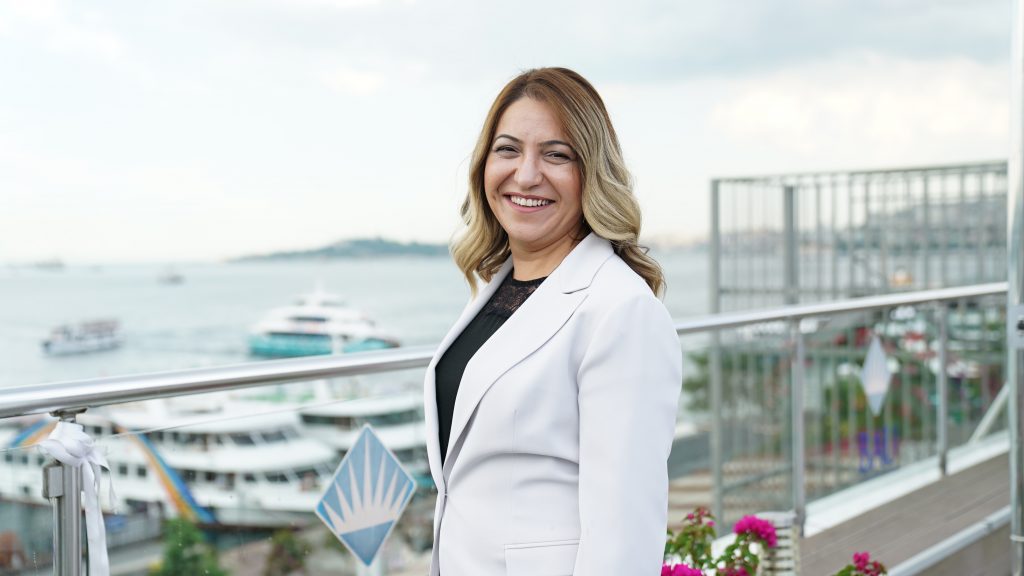
Şirin Karadeniz, PhD, President
Prof. Dr. Şirin Karadeniz is the President of Bahçeşehir University (BAU) since July 2019. She is also the vice-chairman of International Training Center for Authorities and Leaders, CIFAL Istanbul, an affiliated center of United Nations Institute for Training and Research (UNITAR). In her prior roles, she has served as Dean of Faculty of Educational Sciences at BAU, chairman of Innovative Education & Research Center, and chairman of Center for Teaching & Learning. She has also served on the boards of Turkish Industry & Business Association, Association of the Future of Education and Foundation of Bahçeşehir Uğur Educational Institutions.
Prof. Karadeniz is an educational technologist. She has earned her bachelor’s degree in Computer System Education, master’s degree in Computer Education and Ph.D. in Educational Technology. Prof. Karadeniz has published books and articles and conducted classes and seminars on the integration of emerging technologies into education, learning designs for 21stcentury competencies and STEM education.
Prof. Karadeniz has led projects on developing computer science education frameworks and curricula for Bahçeşehir Uğur Education Institutions. She has also served as Academic Commission Member to develop Computer Science and Software curricula for primary, secondary and high schools for the Ministry of National Education of Turkey in 2016-2017. She has served as the head of Research & Development of Harezmi Educational Model of Istanbul Directorate of National Education since 2016. She headed the coding and robotics training project for disadvantage children planned with the cooperation of Bahçeşehir College & Garanti Bank. In light of her efforts and dedication to developing the quality of and increasing inclusion in education, she was awarded as the Woman Educator of the year in Women’s Leaders of Technology prize organized by Microsoft and The Women Entrepreneurs Association of Turkey in 2016, and BAU Social Benefit Award in 2018.
Prof. Karadeniz has served as a consultant, researcher and leader of national and international projects for Scientific Research Council of Turkey, Ministry of National Education, UNICEF, World Bank and European Union.
Mitchell Hamline School of Law
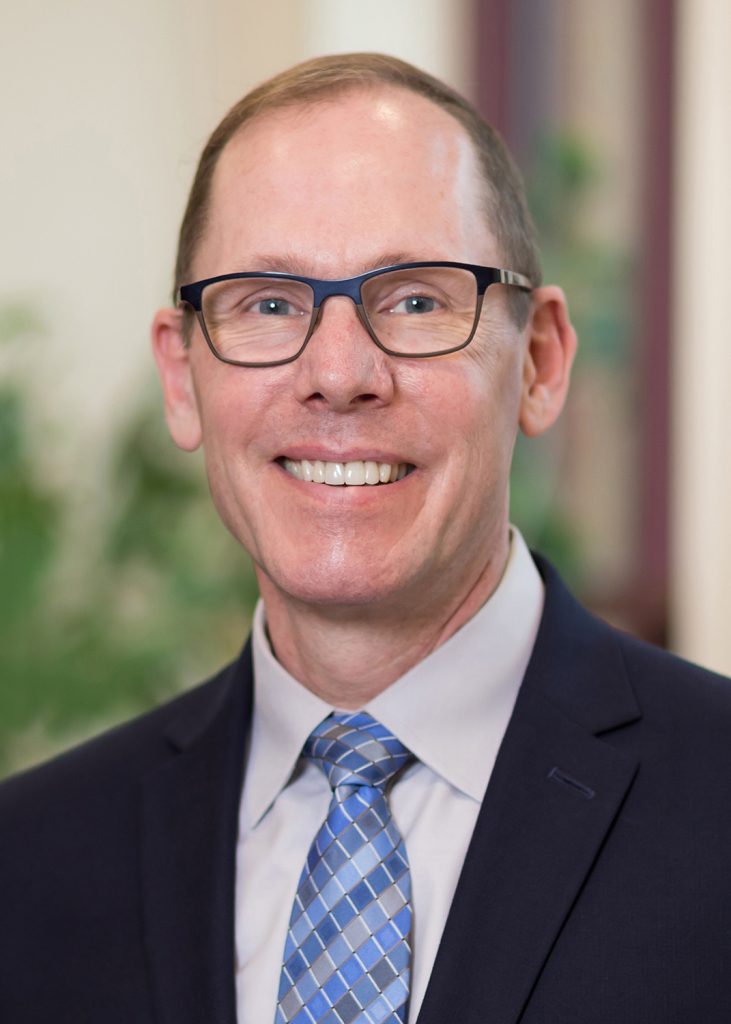
Anthony Niedwiecki, President and Dean
A longtime legal educator and activist on behalf of LGBTQ rights, Anthony Niedwiecki began serving as president and dean at Mitchell Hamline School of Law on July 1, 2020.
Previously dean and professor of law at Golden Gate University School of Law in San Francisco, Niedwiecki is the second president and dean at Mitchell Hamline, which was formed in 2015 through the combination of William Mitchell College of Law and Hamline University School of Law. He is the first openly gay president and dean at Mitchell Hamline or any of its predecessor schools.
Niedwiecki practiced as an attorney for three years before moving into legal education in 1998. In addition to Golden Gate, he has held law school faculty and administrative positions at Temple University, Arizona State University, Nova Southeastern University, and John Marshall. His scholarly research focuses on metacognition and the need to better train students to transfer their learning to new and novel situations.
For more than two decades, Niedwiecki has advocated for social and racial justice as an academic, elected official, and community activist. In 2007, he founded Fight OUT Loud, an organization dedicated to helping people counter discrimination and hate directed at the LGBTQ community, and he has received numerous awards for his advocacy on LGBTQ issues. He has served as city commissioner and vice mayor of Oakland Park, Fla., as well as a member of the Broward County, Fla., Resource Recovery and Human Rights boards.
Presenters and Presentations
Presenters
A
The Honorable Justice M. Imman Ali, Supreme Court of Bangladesh, Appellate Division, Justice
Virtual Justice Delivery System – A Reality Due to COVID-19 and Endeavors to Uphold the Rule of Law
Yonathan Arbel, The University of Alabama School of Law, Associate Professor
Contracts in the Age of Intelligence Readers
Mariam Atash, Bay Atlantic University, Adjunct Professor & Prime Counsel, Managing Partner
Reducing Costs of Legal Services through Creation of Competition using Technology
Dr. Derin Atay, Bahçeşehir Univerisy, Dean, Faculty of Educational Sciences
What Motivates Law School Students?: An Explanatory Study from Turkey
Dr. Aydin Atilgan, Bahçeşehir Cyprus University, Assistant Professor
B
Elizabeth Berenguer, Stetson Law School, Associate Professor
Leveraging Technology to Develop a Client-Centered Practice
Lisa Radtke Bliss, Georgia State University College of Law, Associate Dean for Experiential Education and Clinical Programs, Clinical Professor of Law
Creating Virtual Education Spaces to Support Equity, Inclusion, Belonging, and Wellbeing
Sevda Bora Çinar, Akdeniz University Faculty of Law – Department of Commercial Law
Case Management and Artificial Intelligence
Dr. Marina Matic Boskovic LLM, Research Fellow, Institute of Criminology and Sociological Research
Dr. Cynthia Boyer, Institut Maurice Hauriou, Université Toulouse Capitole, France
Artificial Intelligence, Bias, and Judicial Decision Making
Larry Bridgesmith, Vanderbilt School of Law, Adjunct Professor
Web 3.0 Access to Justice: The Future is (Almost) Here
David Brody, Yaşar University Law Faculty
Susan Brooks, Drexel University Thomas R. Kline School of Law, Associate Dean for Experiential Learning, Professor of Law
Creating Virtual Education Spaces to Support Equity, Inclusion, Belonging, and Wellbeing
Kathleen Burch, Atlanta’s John Marshall Law School, Professor
Tech Literacy: a Minimum Competency to Practice Law
C
Zachary Calo, Hamad bin Khalifa University College of Law, Professor
Alternative Dispute Revolution: Technology and ADR in the Middle East
Bilge Can, Rheinische Friedrich-Wilhelms-Universität Bonn, Master Student
Data Science in the Law: New Age of the Interpretation
Christine E. Cerniglia, Stetson College of Law, Associate Professor and Director of Clinical and Experiential Education
Ian Collins, Yaşar University Law Faculty
Lurene Contento, St. John’s University School of Law, International LLM Graduate Studies Program
Teaching the Modes of Persuasion in an Online Skills Classroom
D
Dr. Nezahat Demiray, Ufuk University, Faculty of Law
Turkish Constitutional Law in the Online Classroom: Changing Methods
Kishore Dere, Indian Society of International Law, Visiting Faculty
Thriving Academic Networks Amidst COVID19 Pandemic Disruption
Janet Dickson, Seattle University School of Law, Co-Director, Legal Writing Program
Teaching the Modes of Persuasion in an Online Skills Classroom
E
Ryan Elder, Mitchell Hamline School of Law, Instructional Designer
Amy A. Emerson, Villanova Law School, Assistant Dean for Library and Information Services & Assistant Professor of Law
How the Process of Building Legal Technology Develops Professional Agility in Law Students
Zülal Erdoğan, Galatasaray University Faculty of Law
The Future of Legal Education Through the Lenses of Law Students
Lindsay Ernst, The University of Hong Kong, Faculty of Law, Human Rights Experiential Learning, Lecturer, and LLM in Human Rights, Co-Director
Dr. Erman Eroğlu
F
Steven Foster, Director of Academic Achievement and Instructor in Law, Oklahoma City University School of Law
Leanne Fuith, Mitchell Hamline School of Law, Associate Professor
Lessons on Delivering Justice in A Post-COVID19 World
G
Nira Geevargis, University of California, Hastings College of Law, Associate Clinical Professor and Director, Externship Programs
Derya Durlu Gürzumar, Attorney-at-Law, Istanbul Bar Association; Bilkent University Faculty of Law, Guest Lecturer
H
Melissa Hale, Director of Academic Success and Bar Programs, Loyola University Chicago School of Law
Ozan Emin Halhalli, Turk-Alman University, Research Assistant
Burçin Han, President of Malatya Bahçeşehir College
Enver Han, President of the Malatya Bar Association
Contributions of Internships and Vocational Trainings Organized by Bar Associations for Legal System
Courtney Abbott Hill, Syracuse University College of Law, Associate Teaching Professor
Bennett Hirschhorn, Attorney at Law, Knoxville, TN
Leveraging Low-Cost Technology to Build a Flourishing Low-Bono Law Practice
Kimberly Holst, Arizona State University, Sandra Day O’Connor College of Law, Clinical Professor of Law, President of Legal Writing Institute
Teaching the Modes of Persuasion in an Online Skills Classroom
Kristen Uhl Hulse, University of Denver School of Law, Assistant Professor of the Practice of Law
Chaumtoli Huq, CUNY School of Law, Associate Professor of Law
Creating Virtual Education Spaces to Support Equity, Inclusion, Belonging, and Wellbeing
I
J
Lucy Jewel, University of Tennessee College of Law, Professor
Leveraging Low-Cost Technology to Build a Flourishing Low-Bono Law Practice
K. Paul Johnson, Johnson Kraeuter, LLC, Partner
Leveraging Technology to Develop a Client-Centered Practice
K
Jacques Kabano, Ankara University
Cybersecurity and International Law: Are We Where We Should Be?
Cemre Cise Kadioglu LLM, Ankara University
Aybike Ceren Kahveci, King’s College London
The Future of Legal Education Through the Lenses of Law Students
Zeynep Ülkü Kahveci, Istanbul Bilgi, Faculty of Law
The Future of Legal Education Through the Lenses of Law Students
Tuğba Akdemir Kamali, Yaşar University Law Faculty
Hope Kentnor, eLearning Consultant, eDevLearn, Founder
Curriculum Development: How to Develop a Curriculum for a Hybrid or Online Course
Peter Kempner, Legal Director, Volunteers of Legal Service
Badel Keskin, Bahçeşehir University Faculty of Law, Master Student
The Impact of Big Data on Law: Education and Legal Infringements
Muharrem Kiliç, Ankara Yildirim Beyazit University, Faculty of Law, Professor
Emre Kiyak, Recep Tayyip Erdogan University Law Faculty, Department of Civil Procedure – Enforcement and Bankruptcy Law, Assistant Professor
The Necessary Limits of Holding a Hearing with Sound and Image Transmission in Civil Proceeding
Catherine F. Klein, The Catholic University of America, Professor and Director of Columbus Community Legal Services
VS Krishna, World of Legal Research, India Research Associate
Idil Kula, Ondokuz Mayis University, Faculty of Law
Riza Küçükoğlu, BJK-Kabataş Foundation, General Manager
Oğuzhan Kumbaracı, Bahçeşehir University Faculty of Law
The Future of Legal Education Through the Lenses of Law Students
L
Reichi Lee, Golden Gate University School of Law, Associate Dean for Online Education and Director of Academic Achievement
Nicole Lefton, Assistant Professor, Director of Academic Support & Bar Exam Preparation, Maurice A. Deane School of Law at Hofstra University
Marcia Levy, University of New Hampshire Law School, Professor
M
Suparna Malempati, Atlanta’s John Marshall Law School, Associate Professor
At the Core of Advocacy: Effectively Teaching Trial and Depositions Skills Online
John Mayer, Executive Director, CALI
Open Source Legal Education – Collaborative Instructional Design During and After the Pandemic
Laura Mott, City University School of Law, Director of Academic Skills for the 1L Evening Program
N
Gary C. Norman, Maryland Commission on Civil Rights, Chair
Dr. Marko Novakovic, Institute of International Politics and Economics, LLM, Research Fellow
Ann Nowak, Touro College Jacob D. Fuchsberg Law Center, Director – Writing Center
The Transnational Classroom: Creating an Online Community Across Borders
O
Alp Emre Oktar, Würzburg University
The Future of Legal Education Through the Lenses of Law Students
Dyane O’Leary, Suffolk University School of Law, Director, Legal Innovation & Technology Concentration
Preparing Today’s Remote Lawyer for Tomorrow’s Confidentiality Crisis
Elif Şeyda Oluklu, Galatasaray University
An Overview of Arbitration in the Pandemic Era
Alev Ozeroglu, Marmara University
The Impact of the Use of Technology in “New Normal” on Graduate Studies
P
Cathren Page, Mercer University School of Law, Director of Advanced Legal Writing Certificate Program
Mitsu Parikh, World of Legal Research, India, Partner and Senior Researcher
Murat Can Pehlivanoğlu, Istanbul Kent University, Assistant Professor
Michele Pistone, Villanova University, Charles Widger School of Law, Professor
Top Five Lessons Learned About Online Law Teaching and Learning from the Pandemic
Q
R
Dr. Nora Rzadkowski, The University of Applied Sciences Ludwigsburg, Assistant Professor
Margaret Reuter, University of Missouri-Kansas City School of Law, Clinical Professor and Director of Field Placement Programs
Best Practices for Designing Equitable Synchronous and Asynchronous Blended Classes
Allie Robbins, City University School of Law, Senior Associate Dean for Academic Affairs, Associate Professor of Law, and Director of Academic Skills
S
Rabia Şahan, Turk-Alman University
Karen Sanner, Saint Louis University School of Law, Professor of Legal Writing
The Future of Law Practice: Preparing Tech-Competent Lawyers
Drew Simshaw, Gonzaga University School of Law, Assistant Professor
Amanda Soderlind, Mitchell Hamline School of Law, Senior Instructional Designer
Leveraging Technology to Bring Students Together in Distance Education
Dr. Barry Solaiman, Hamad bin Khalifa University College of Law, Assistant Professor
Alternative Dispute Revolution: Technology and ADR in the Middle East
John Sonsteng, Hamline Mitchell School of Law, Professor Nora Rzadkowski
Teaching and Learning Law and Business: An Open Resource Tool
Ulrich Stege, International University College of Turin, Faculty Member and Clinical Program Director
T
Doğa Taşpinar, Bahçeşehir University Faculty of Law
The Future of Legal Education Through the Lenses of Law Students
U
V
Jeffrey A. Van Detta, Atlanta’s John Marshall Law School, The John E. Ryan Professor of Int’l Business & Workplace Law
Rüveyda Varan, Ufuk University Faculty of Law
The Future of Legal Education Through the Lenses of Law Students
Anthony Varela, Mitchell Hamline School of Law, Senior Instructional Designer
Leveraging Technology to Bring Students Together in Distance Education
Ozge Varis, Kirklareli University, Law Faculty, Assistant Professor
Virtual Era International Investment Dispute Settlement: Pre-COVID19 and Post-COVID19
W
Carwina Weng, Indiana University Maurer School of Law, Clinical Professor of Law and Director, Community Legal & Disability Law Clinic
Best Practices for Designing Equitable Synchronous and Asynchronous Blended Classes
Mark Wojcik, UIC John Marshall Law School, Professor
COVID and the Courts: How Civil and Criminal Courts Adapted to the Pandemic
X
Y
Dr. Bharti Yadav, National Law University Delhi, Faculty
Dr. Sharon Yadin, University of Haifa Faculty of Law, Research Fellow
Betül Yakar, Necmettin Erbakan University
The Influence of Social Media Over the Decision-Making Process
Z
Presentations
Access to Justice
Artificial intelligence (AI) has been heralded as one of the most promising tools for improving access to justice by helping increase the efficiency of lawyers and courts, reducing costs of services, and helping consumers solve their own legal problems or connecting them with lawyers who can. But AI has advanced beyond a mere tool for lawyers, clients, and consumers, and is increasingly an inextricable part of the law and law practice, impacting virtually all stages of legal problem solving. In other words, AI is not just a means for accessing and facilitating efficient legal services; it is integral to the services themselves and the ultimate goal of justice. This presentation will offer a shift in perspective – recognizing AI as not just a means but also an end – which is imperative for understanding the ways in which barriers to accessing AI are increasingly also barriers to accessing justice. Through this lens, the presentation will address barriers that lawyers, clients, and consumers face in achieving meaningful access to legal AI, and will offer comprehensive practical, policy, and regulatory solutions that will help close this “AI justice” gap and increasing the trust among participants.
The COVID19 pandemic presents the most serious peace-time challenge that effected everyday life of people globally. The adjustment to this situation is still an ongoing process with various success in different areas. However, the judicial systems had to adjust rather quickly, due to the fact that fundamental rights must be protected on daily basis. The author will present the ICT tool introduced in Serbia for organization of hearings, as a response to the COVID19-related restrictions. This tool affected the proceeding in several ways, but the author will not stop at the present-day analysis – she will also present the short-term and possible long-term effects of the COVID19 pandemic to the judiciary.
Case Management and Artificial Intelligence
Case management is negatively affected by many human-induced problems, starting from the deficiencies stemming from the quality of legal education, carelessness in the court organization due to workload, bribery and corruption in which personal interests are highlighted, and ultimately the professional inadequacy of the people involved in this process. As a result of the rapid developments in the field of artificial intelligence, robotic technology in the field of medicine performs the most difficult operations which require attention and care more effectively than humans. Like medicine, the field of law requires superhuman excellence, honesty and professional expertise. From this point of view, artificial intelligence applications promise capabilities that will both increase the quality of legal education and compensate for human-induced obstacles in the process of case management.
COVID and the Courts: How Civil and Criminal Courts Adapted to the Pandemic
This presentation will examine how trial and appellate courts adapted judicial proceedings in civil and criminal matters, looking at which modifications worked well and which ones fell short. The presentation will also provide helpful tips for practitioners and witnesses who find themselves appearing online rather than in court. Finally, the presentation will examine possible new directions and permanent changes that may remain even when judicial proceedings return to “normal.”
Lessons on Delivering Justice in a Post-COVID19 World
As the COVID19 pandemic has persisted, our clients’ abilities to access legal services has been severely disrupted revealing cracks in a framework of delivering justice that was already systemically unequal. Through a summary of interviews conducted with judges, court administrators, and attorneys in many areas of private practice, this presentation will explore the access-to-justice challenges brought on by COVID19 (as well as some related successes). It will also highlight solutions and best practices for enhancing the delivery of legal services to clients in a post‐COVID world.
Leveraging Low-Cost Technology to Build a Flourishing Low-Bono Law Practice
This presentation will show how attorneys can leverage almost free, commodity technologies to build a successful “low-bono” law practice, allowing a lawyer to make a reasonable living and improve access to justice. Low bono refers to providing legal services at a rate that is lower than the prevailing market-rate. In this presentation, we will show how existing, non-legal niche technology can be leveraged to scale low bono legal work in such a way that an attorney can make a good living, yet still charge his/her clients below the market rate.
The Necessary Limits of Holding a Hearing with Sound and Image Transmission in a Civil Proceeding
To keep open all doors of access to justice under the conditions of the pandemic, the need to give accurate answers to the question of how to gain more efficiency from information technologies in the judicial procedure has increased. However, hasty steps to be taken at this point may result in (unwittingly) damage to the basic principles of the judgment. In attempts to bring away the judicial process from real environment to virtual environment, adopting a proportionality based approach by considering the basic judgment principles, as much as possible, will contribute to having results that resolve the conflict of “Principles of Judgment” vs. “Need for Speed and Convenience in Judgment” in a win-win situation. In this respect, the presentation aims to bring the question of “how such an approach can be developed” in particular holding a hearing with sound and image transmission in civil procedure to the table. The main premise of the presenter to form a starting point for the answers to this question is to make a classification by considering the types and characteristics of the procedural actions (of court and party) and the stages of trial at the point of holding a hearing with sound and image transmission. In line with this classification, holding a hearing with voice and image transmission can be enabled for routine actions, otherwise, this opportunity can be limited under the situations where holding a hearing in real environment has fundamental importance for resolving the dispute.
Virtual Justice Delivery System – A Reality Due to COVID-19 and Endeavors to Uphold the Rule of Law
This presentation shall commence with what happened when COVID-19 showed its ugly head and the Bangladesh judiciary suddenly found itself helpless, without any way to dispense justice to the litigant public. Rule of law came to a standstill.
Next, will be a discussion about the background to the presidential legislation (ordinance) as a stop-gap measure and how it was used to meet the immediate demands to minimize the spread of the virus and to avert a catastrophe and at the same time ensure continuity of the justice delivery system.
The presentation will then describe how the Bangladesh judiciary are using the new legislation, the IT infrastructure and the ideas that were born out of and developed at the height of the pandemic.
Lastly, there will be a discussion of the future use of videoconferencing in judicial proceedings as well as the prospects of using the system for other schemes, such as ADR, ODR, e-Courts etc. in order to alleviate the pressures on the court system. The presentation will also mention the use of virtual/remote conferencing for training, teaching and seminars and other such purposes.
Web 3.0 Access to Justice: The Future is (Almost) Here
Web 3.0 Access to Justice can be likened to an artificially intelligent assistant that understands its user and personalizes everything related to their legal needs. With access to the entire internet and the capacity to search its contents instantly with natural language processing power (GPT-3), access to justice will become a reality for the global populations. Integrating the tools of emerging technologies (blockchain, AI, cryptocurrency, Distributed Finance (DiFi), “smart contracts” and machine learning) are bringing the power of digital transformation to the delivery of legal services. Web 3.0 A2J and will disrupt traditional siloed legal service delivery models irreversibly.
Admission to Practice
When I learned that my students would be packed in with over a thousand bar takers for two days of test-taking in a pandemic hot spot, I started a petition, called the press, and made a pest of myself. Ultimately, the Florida Bar Exam moved online, but that was just the beginning of many challenges that both bar testers and bar takers face in the virtual legal world. Lawyer’s licensing organizations do owe a public health duty to both potential licensees and the public, and, yet, at the same time, they also owe a duty to provide the public with lawyers who will advocate competently and zealously for them. Worldwide, licensing organizations face challenges in balancing these concerns. This presentation will compare global approaches to licensing lawyers in the virtual age and analyze benefits and drawbacks.
This presentation first analyzes recent disruptions to the bar exam and then engages audience members in discussion about how to transform admission into the profession. The presenter will discuss how the reliance on technology is steering lawyers away from inter-personal connections to clients most in need of legal services and how the time is ripe to shift to an apprenticeship model as a requirement for entry into the profession.
Alternative Dispute Resolution
Alternative Dispute Revolution: Technology and ADR in the Middle East
This presentation assesses how institutions in the Persian Gulf are deploying technology to deliver ADR services to the international business community. Qatar, the UAE, Saudi Arabia, and Oman are at a significant global crossroad serving businesses from around the world. The pandemic has resulted in changes to the practices and rules governing the use of dispute resolution services. This presentation brings together the results of surveys and interviews to appraise those developments.
The e-platform economy is destined to engage with online dispute resolution mechanisms. In this regard, the Regulation (EU) 2019/1150 of the European Parliament and of the Council of 20 June 2019 requires e- platforms to establish internal complaint- handling systems. This study will discuss how the technology has promoted e-platform specific internal complaint-handling systems and how the above-mentioned EU regulation outlines such hybrid model of online dispute resolution.
Blockchain is a technology that has applications other than crypto assets. Dispute resolution is becoming one of the alternative applications. The presentation addresses how blockchain can be used for dispute resolution and how this technology affects the conventional dispute resolution habitat. The presentation investigates whether this technology can facilitate access to justice by decentralizing the system and increasing the trust among participants.
An Overview of Arbitration in the Pandemic Era
The presentation will examine the developments in arbitration during the pandemic period. The question of what contribution technology has made to arbitration practice during the pandemic period will be answered. In addition to the advantages of arbitration practice in the pandemic period, its disadvantages will be discussed. What kind of arbitration practice was followed in Turkey and other countries will be compared. Finally, which of these practices will be temporary and which will be permanent after the pandemic process will be evaluated.
Virtual Era International Investment Dispute Settlement: Pre-COVID19 and Post-COVID19
This presentation analyzes the changing landscape and digitalization of the investor-state dispute settlement system. The contemporary practice and the proposed reforms will be compared. As a result, the pros and cons of the COVID19 pandemic on the ISDS will be illustrated.
Legal Education
At the Core of Advocacy: Effectively Teaching Trial and Depositions Skills Online
This presentation will provide guidance to legal educators on effective online teaching of trial and deposition skills. The focus will be on teaching proper questioning techniques through in-class drills and exercises, as well as teaching the art of persuasion. As courts around the globe move toward online proceedings in many areas, effective trial and deposition skills will be key to successful advocacy.
Best Practices for Designing Equitable Synchronous and Asynchronous Blended Classes
This program is designed to set a foundation for attendees regarding best practices for weaving synchronous and asynchronous teaching techniques into a blended course. The program will offer a primer in basic course design principles; examine the special advantages of the online format; and assess student learning, especially issues of student equity in learning. The presenters and attendees will examine multiple techniques of synchronous and asynchronous teaching, using small group work.
The rampant advancement of technology has transmogrified the traditional education system and has not only simplified the method of teaching but has also delved and altered the administrative tasks, i.e. from grading to managing the documentation which has made the professor’s tedious job easier and better. The authors would like to enunciate in two-fold via the presentation as to how Massive Open Online Courses (MOOCs) and virtual classroom activities has benefitted the students in the COVID19 situation by crafting a new curriculum followed by ‘Whether the benefits provided by AI outweighs the risks’?
The legal profession is one of the least diverse professions in the United States. The path to a more diverse, inclusive, and equitable profession begins with law schools. In order to provide more equitable resources for law student success, CALI put together a fellowship of academic support professionals to create free, inclusive, law school study aids. In this presentation, we will address why these supplemental, online study aids are so important in bridging the knowledge and resource gap among law students, and also how we collaborated to create interactive, online learning tools that could be used by all of our students, as well as by students in schools with fewer academic support resources.
Contributions of Internships and Vocational Trainings Organized by Bar Associations for Legal System
The main idea of this presentation is to explain the importance of vocational trainings provided by bar associations to lawyers and trainee solicitors. In order to increase the quality of service, students can get vocational trainings after their graduation. How these trainings are planned and what they should include will be explained in this presentation.
Curriculum Development: How to Develop a Curriculum for a Hybrid or Online Course
This session will review the six steps in developing a curriculum for the online or hybrid classroom, examine the evolving ‘best practices’ of online pedagogy, and explore how re-envisioning the learning experience leads to improved traditional classroom pedagogy.
Data Science in the Law: New Age of the Interpretation
The purpose of this presentation is to discuss the advantages and disadvantages of the usage of data science as an interpretation tool. The technological interpretation methods such as content analyses and prediction will be examined to understand the efficiency of data science as an interpretation method. The similarities and differences between legal interpretation methods and the new methods offered by data science will be analyzed to determine whether this technology is accurate or it is compatible with our legal system.
Deficiencies and improvable aspects of legal education will be expressed from the eyes of students -the receivers of legal education- in a comparative context regarding Turkey and Germany. Decision of studying law, legal curriculum, relationship between academia and practice will be the main emphasis in the work. Recommendations will be given.
In this presentation, the importance of education before undergraduate study will underlined. The presentation also focus on essential and basic qualities of the lawyers such as discernment, reading comprehension and exposition, knowledge of foreign language and technology literacy.
Sports Law is an amalgam of laws that apply to athletes and the sports they play. Sports Law touches on a variety of matters including mediation, contract tort, agency, antitrust, constitutional, labor, trademark, sex discrimination, criminal law, and tax issues. International Sports Law is mainly related to Arbitration, Anti-Doping, Human Rights & Anti-Discrimination, Women & Sports, Gender Identity & Sports, and Violence & Sports through agencies. Internet of Things (IoT) can be a good information Technology for the Sports Law Education. Recently, Artificial Intellıgence of Thing (AIoT) has been used through integration of IoT and AI (Artificial Intelligence) to make system intelligent too.
The Future of Legal Education Through the Lenses of Law Students
Students from Turkey, Germany, and the UK will delve into their online education experience and will evaluate the efficiency of online classes and evaluation methods. The Presenters will bring criticism and offer improvement for online legal education at both the undergraduate and graduate level.
The Impact of the Use of Technology in “New Normal” on Graduate Studies
Technological development has affected legal education as much as it has affected other disciplines. Especially, graduate students in the field of law were closely affected by the technological impact in “new normal” created by the COVID19 disease. With the new normal, addiction to technology has increased and this technological effect has affected graduate students positively in some areas (like doing research and literature reviews) and negatively in others (such as field research).
This presentation will focus on the planning, developing, and delivering of Mitchell Hamline School of Law course content during the COVID19 Pandemic. The focus of this presentation will be on how Mitchell Hamline School of Law used professional development, technology, and best practices to assist professors in moving classroom-based courses into remote instruction-based courses.
Open Source Legal Education – Collaborative Instructional Design During and After the Pandemic
Open, Digital-First educational content gives students, faculty and schools the agency to construct their own educational journeys. DRM, passwords and high costs make it harder to repurpose materials when circumstances change – like during a pandemic. There is a lot to unpack here and this talk will do so at lightening speed. The materials we offer and the software tools we use to deliver education are a core tech competency for our schools. We can and should work together to create an ecology of Open Source Legal Education that still can compensate authors for their good works and maintain a high quality.
The paper starts with a brief assessment of the unfair situations resulting from the strict digitalization due to the COVID pandemic and continues by examining the relations between globalization and digitalization. The presentation identifies and questions which approaches can be adopted in terms of legal education. In this aspect, the presentation deliberates on the question of inclusion of women, gender diverse people, and the other groups which are unequal in opportunity and correlate these issues with technology integration. After inspecting inclusion, the paper concludes with analyzing the career support and mentoring services around the law faculties in the country. Possible alternatives and some constructive criticism of the broken-system of early practice of law and legal education are provided.
Since common law and civil law systems have different key features, the teaching methods of these two systems are different. Students earning their bachelor of laws degree in civil law countries face various challenges during their master of laws education in common law countries. Based on experience, several suggestions will be proposed to help minimizing the challenges.
Externships enable students to gain practical legal experience while studying law. The placements are typically on site at a legal service, government, private office or at the judiciary, and the supervisor is a staff attorney or law clerk at the placement. With the advent of COVID, many, if not most externships are remote. This interactive workshop will explore ways in which both a field supervisor and director/professors running externship programs at law schools can assure that students working remotely have a robust experience, and receive supervision and feedback, which are critical to developing professional identity. The presenters will explore some of the ways in which they have assured a meaningful externship experience. Using small group work, the audience will help in brainstorming ideas and best practices.
Teaching and Learning Law and Business: An Open Resource Tool
This presentation is based on a dissertation and Open Resource Tool that examines the impacts of business law education through a multi-layered review of surveys, data, and literature. The authors examine what law schools across the country offer, explore research conducted in partnership with the Minnesota and American Bar Associations and provide a systemic review of the relevant literature. The data shows attorneys resoundingly do not believe law school coursework prepared them adequately for the business of law. Small to mid-sized businesses and entrepreneurs do not find the lawyers law schools produce to be prepared to practice law. Despite the practical changes that have been made to law school education since the 1960s to the present, there is still a disconnect between what law schools say they will provide and what is delivered. By examining this issue of how law schools have offered an unfulfilled promise, the authors clarify the process by which education can transform lives, open doors, and reorganize structures to address the needs of the communities lawyers and law schools serve.
Recent events compel us to look anew at changing our perspective so that lawyers around the globe can be linked more closely together than ever before across national boundaries and legal traditions. A unique opportunity presents itself to make comparative law discussion more valued and more frequent among 21st-century lawyers. Specifically, we have the confluence of the facts that (1) 93 nations have ratified the U.N. Convention on the International Sale of Goods (CISG) and (2) because of the COVID19 pandemic, law teachers across the globe have for the first time given serious and sustained attention to teaching their classes online, using such trans-national platforms as Zoom Meeting. Professor Van Detta will illuminate how these events open the door to using the CISG as a legal lingua franca, from which teachers in each country can teach their country’s traditional contract law as distinctions, within the frame of common reference provided by the CISG, while creating a meaningful foundation for comparative law appreciation and application in law practice.
Teaching the Modes of Persuasion in an Online Skills Classroom
Understanding the rhetorical modes of persuasion is an essential tool for effective advocacy. As a foundational skill, students should demonstrate competency in the use and application of the modes of persuasion in legal practice. This presentation will highlight the importance of this skill. We will also model a method of teaching this skill in an online skills classroom. Using various features of the presentation modality (e.g. breakout rooms, whiteboards, chat), we will demonstrate ways to teach skills effectively in an online environment.
Thriving Academic Networks Amidst COVID19 Pandemic Disruption
This presentation explains emergence of a golden era of new academic collaboration opportunities through digital technologies across the board defying the shackles of COVID19 protocol. Seamless engagement with emerging and established scholars from multiple disciplines everywhere on this planet is the hallmark of the virtual learning phase in human history. The treasure-trove of knowledge and wisdom has been unlocked with the help of digital technology platforms like Zoom, Webex, and Google Meet. Just by having a smartphone or laptop and a broadband internet connection (for stability), one can register for almost any webinar and participate in it. All those who cannot travel due to age, health, financial constraints, lack of time, and many other reasons, can join webinars from the comfort and convenience of their respective homes. The scholarly world is coming together without visas, travel, physical meetings, and hospitality.
Top Five Lessons Learned About Online Law Teaching and Learning from the Pandemic
Teaching law online is daunting. Because of the COVID19 shift to remote learning, we are all being asked to change the way we have been teaching for years. And, we are doing this all in a vacuum because there are not many models for how to teach law online effectively.
This presentation is designed to help you overcome some of the pain points of designing an online course. The Top 5 Lessons Learned about Online Law Teaching derives from a several-session workshop conducted by Professor Michele Pistone at the AALS Clinical Conference for several years. She will walk you through tips she learned over the last ten years as she has designed online courses and videos for legal education.
The distance learning tidal wave has come for law schools, as evidenced by the rapid rate in which schools across the country are adopting hybrid online J.D. programs. However, law schools, which have been built around a traditional brick-and-mortar approach to education delivery for centuries, are generally ill-equipped to meet the new demands of hybrid online education. In this presentation, you will learn about the tested approaches that form the framework of a high quality hybrid online program and how to overcome the inevitable roadblocks in creating, developing, administering, designing, and teaching in these programs.
Transnationalization is a challenge against orthodox thinking in legal education. On the one hand, it brings new actors and structures into play, and on the other hand, it is hard to identify transnationalization through a systemic order. In contemporary legal scholarship, it is becoming more and more evident that conventional methodologies of the legal discipline are not capable to capture the new structures and actors. Against this background, introduction of this phenomenon into legal education requires the development of new didactic approaches. The main goal of this presentation is to contribute to enriching individual experiences in a transnationalized legal world by seeking alternative teaching and learning methods in legal education.
Turkish Constitutional Law in the Online Classroom: Changing Methods
Although the individual application to the Turkish Constitutional Court came into effect only eight years ago, it is understood that it is the most important way to protect constitutional rights. The method in the courses where we analyze the decisions of the Constitutional Court for individual application has changed in the online courses that started due to the global epidemic. While analyzing court decisions, students began to focus on the events and stories behind the decisions. When analyzing decisions, public debates behind violations of rights, media news, political developments, and relevant statistics are increasingly attracting the attention of all students. Online tutoring experience on constitutional rights will inevitably change the methods in face-to-face lessons.
This presentation addresses the following issues:
- How to teach skills courses, clinics, and other experiential courses online.
- What do we know about the effectiveness of online, versus in person, experiential instruction?
- Does minimum competency to practice law include minimum skill levels in the use of technology?
- What impact does the adoption of online technologies in court proceedings have on vulnerable and underrepresented groups?
The presentation is limited to practices followed during the pandemic in USA, Italy, Hong Kong and India. The presentation aims to identify and propose best practices for experiential learning during the pandemic by critical comparative analyses of practices followed in the above-stated countries.
What Motivates Law School Students?: An Explanatory Study from Turkey
Current interest and efforts in applied research have demonstrated the enduring strength of motivation for improving students’ engagement in learning activities, academic performance, school attendance, graduation rates, and social competencies. This presentation is about the academic motivation of Turkish law school students and the factors that affect their level of motivation. Quantitative data were collected by means of Academic Motivation, Student Perception of School Climate and Learning Approach scales and qualitative data came from focus group interviews conducted for in-depth student opinions. In the presentation, theoretical and practical implications of results will be discussed and linked to educational practices that may enhance law students’ academic pursuits.
This session will begin with an analysis of the key challenges faced by the 30% English program in the Yaşar University Faculty of Law, based on the understanding that many 30% English programs in Turkey today face similar problems. The session will move on to detail the establishment of the Legal English Center and its proposed role in dealing with student engagement and faculty issues, both at Yaşar University and throughout Turkey. There will also be an opportunity for discussion at the end of the session.
Students and Community
Creating Virtual Education Spaces to Support Equity, Inclusion, Belonging, and Wellbeing
Given the social unrest and other social and emotional challenges presented by our current situation, expertise with shifting the teaching of legal doctrine to online modalities alone is not enough. Teachers need to consider how they can bring an anti-racist lens and a focus on wellbeing to their online pedagogy and create learning communities that are democratic, inclusive, and caring. This presentation will focus on methods to use in an online environment to create community in a way that promotes equity, prioritizes racial justice, and supports individual and collective wellbeing and resilience.
The Transnational Classroom: Creating an Online Community Across Borders
Building a classroom community is essential to the success of transnational courses that are taught online. One of the best ways to build this community is to solicit students’ culturally based assumptions and learn from them. This can be effectively accomplished through simulations. In this presentation, I will discuss my use of simulations in a Law Practice Management course that I have taught to law students and lawyers residing in the United States, Turkey, Iran, and Kuwait.
Leveraging Technology to Bring Students Together in Distance Education
A common criticism of online learning is that students feel isolated and lack interaction with each other and their professors. Our goal is to demonstrate that with intentional design, a meaningful level of student interaction is possible. This workshop will showcase examples of assignments and exercises that promote student engagement and interactivity in an online environment. Examples will include exercises ranging in complexity, from video-based discussions, to virtual office hours or class sessions, to coordinated simulations with a small group. With each exercise, we will highlight the technology tool used to effectively execute it. We will also discuss some technical tips and tricks for adding engagement to your online synchronous sessions.
Students and Technology
The Future of Law Practice: Preparing Tech-Competent Lawyers
Are we producing graduates who meet the current standards of technological competency to practice law? ABA Model Rule of Professional Conduct 1.1, which requires that attorneys meet a minimum standard of competency to practice law, has evolved significantly since the turn of this century. Rule 1.1 now requires attorneys to understand and learn about the “benefits and risks associated with relevant technology” to satisfy the competency standard. Law schools need to recognize this new reality, and the law school curriculum expanded to meet this need. As the front line for teaching students practice skills, legal skills faculty are in a unique position to introduce and embed the idea that competent attorneys must understand the intersection of legal technology and law practice. This presentation will discuss interesting ways to integrate discussions about law and technology into the core curriculum.
How the Process of Building Legal Technology Develops Professional Agility in Law Students
Practical, hands-on courses that focus on the intersection of law and technology provide a natural context for students to learn about barriers to access to justice and to acquire the skills necessary to effectuate systematic change. Today, many U.S. law schools offer classes in which students apply substantive legal knowledge and analysis to create functional legal technologies intended for real world implementation for the benefit of low-income and self-represented litigants. The process of building technology provides students with the opportunity to reexamine traditional legal service models and consider new metrics that better define the legal sector’s value in light of shifting priorities. Students must define the scope of the problem with which they are faced, implement their vision for change, and strategically collaborate with one another to accomplish a shared goal. These competencies are crucial to creating the kinds of lawyers who will lead the evolution of the legal profession in these unprecedented times.
Preparing Today’s Remote Lawyer for Tomorrow’s Confidentiality Crisis
At a time when lawyers are working from different locations, devices, and networks, confidentiality and data security is as important – but as difficult – as it’s ever been. Ethical guidance on what lawyers must or can do to maintain basic competency in this regard is wide-ranging and intimidating. This presentation boils down several key areas of security and confidentiality for today’s remote lawyer and provides concrete tips and suggestions for how lawyers, professors, and law students can begin to integrate best practices into their on-the-go work.
Tech Literacy: a Minimum Competency to Practice Law
This Presentation will provide an introduction to the tech evolution within legal education and the practice of law; will outline the competency that is required under the ABA Model Rules of Professional Responsibility; will then discuss the minimum tech competency required for survival in law school and the practice of law; and will conclude with suggestions on how to integrate legal tech into the law school curriculum.
Technology and Decision-making
Artificial Intelligence, Bias, and Judicial Decision
The development of artificial intelligence (AI) generates a societal change. In the United States, many jurisdictions use AI through the prism of the Correctional Offender Management Profiling for Alternative Sanctions (COMPAS) software assisting the judge in the decision-making. Since the court decision has a significant impact on the personal and professional lives of the individual as well as on society as a whole, it is important to be able to identify the biases of the AI system in order to provide solutions. This article first analyzes the comparisons of inequalities and discrimination that are subsequent to the use of AI in the United States.
The Influence of Social Media Over the Decision-Making Process
Social media in general and Twitter specifically engender public opinion which leads decisions to be taken different from their usual forms. The increasing speed of information access and the abundance of informative social platforms open the way to question the reliability of social news channels. The research seeks to provide insight into the empowerment theory of judges with additional initiative right to strengthen the social consciousness upon realizing the possibility of civil disturbance with present rulings. The paper, additionally, emphasizes the methods to minimize the effect of social disinformation and the ways of lessening the pressure of social media over judicial independence.
The presentation discusses regulatory governance in times of pandemic as a new paradigm in regulatory mechanisms and public health regulation. Digital regulation takes place in various online platforms and relies on information, education, naming-and-shaming and data-sharing. It not only replaces physical regulatory interactions but also directly promotes public health by informing the public of new regulations and deterring non-compliance
Technology and Practice
Contracts in the Age of Intelligence Readers
What does it mean to have machines that can read, explain, and evaluate contracts? Recent advances in machine learning have led to a fundamental breakthrough in machine language models, auguring a profound shift in the ability of machines to process text. Such a shift has far-reaching consequences for contract and consumer law, where information barriers have been the driving force behind a large body of regulation. Our presentation seeks to provide a general framework for evaluating the legal and policy implications of using language models as Artificial Readers (ARs)—tools that read, analyze, and assess contracts.
Cybersecurity and International Law: Are We Where We Should Be?
This presentation will discuss the following:
1. The challenges of international law to regulate cybersecurity (A new distribution of roles between the sources of normativity, mutations in the expression of the rules, tech giants influence on the regulation of the cyberspace)
2. The examination of what has been done so far in international law regarding the relentless challenges brought to the cyberspace with new technologies.
3. The future of international law in the age of digital sovereignty (an auspicious future or a future dominated by the inevitable anarchy of the Internet?)
This presentation will discuss possible risks and opportunities of artificial intelligence applications in the judicial sector. Then, the effects of using artificial intelligence systems in the judicial sector will be evaluated especially within the framework of the fair trial principle. Lastly, an ethical-juridic questioning of artificial intelligence applications will be made in terms of legal professions and legal practice.
The Impact of Big Data on Law: Education and Legal Infringements
This presentation focuses on the impact of Big Data on law by explaining basics, especially on education and legal infringements. It is not new that the Big Data can be used in education. The implementation of this use in legal education is inevitable. Also, daily life is already affected by the use of big data. Understanding the basics will leads to the evaluation of possible infringements, for example processing personal data, security breaches, personal profiling and freewill. It is very important to understand the nature of Big Data in order to catch the agenda as law professionals.
Leveraging Technology to Develop a Client-Centered Practice
Have you been thinking about ways to utilize technology more effectively in your practice but are worried that it won’t go well? In this presentation, you will learn how to more effectively rely on technology to make informed decisions and create a client-centered practice. Through technology, you can improve efficiencies within your practice, reduce mistakes and errors, and connect with clients more intentionally and meaningfully.
Law, which by this usage also includes legal policy and implementation, exerts a powerful and direct impact on the lives of persons with disabilities, including, in terms of their leadership on the public square, as does evolving technologies that could either benefit or erode rights strenuously achieved. A balance of law, ethics, and even moral norms must be established, as all of us grapple with emerging technologies and how they will change our lives post COVID19. This presentation will discuss the need to leverage technology to open doors at higher-levels for lawyer public servants, who also happen to have disabilities.
Reducing Costs of Legal Services through Creation of Competition using Technology
There has been a market failure for legal services in the United States and globally. The high cost of legal representation prevents many parties from pursuing causes of action that could result in judgments against violating parties. In this presentation, perspectives will be shared regarding how technology can address the obstacle of access to justice and also increase the accountability of attorneys to clients. Through the use of technology, competition can be promoted, which can reduce the cost of legal services for some segments of the market, particularly individuals and small businesses who currently cannot access justice due to high costs of legal services.
This presentation will aim to address the role Artificial Intelligence (AI) has played in the evolution of the practice of law over the past decade. Coupled with technological advancements, the legal and ethical considerations surrounding the use of AI in the legal profession have garnered much attention by legal practitioners as well as by academia. The legal profession is certainly undergoing a fast-paced change, driven by technology, and the use of AI in particular could be considered to have a positive impact on the one hand, but might also be considered as raising serious considerations that need further discussion in terms of accessing justice, where rising costs of the use of AI programs raise barriers for those seeking resolution of their disputes. This presentation will hope to ultimately canvass how law firms are adapting to the use of AI and conclude with providing suggestions on well-equipping young lawyers and future generations of legal practitioners in the wake of the fourth industrial revolution.
Conference Committee Members
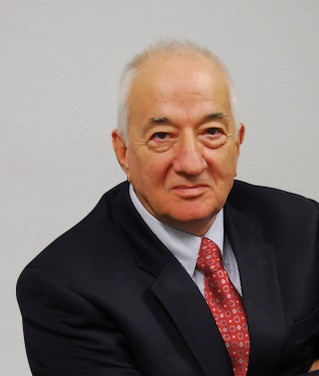
Dr. Feridun Yenisey
Professor Dr. Feridun Yenisey studied Law at the University of Istanbul where he received his Ph.D., with a thesis on ‘Appeals in Criminal Law’. He became Professor at Marmara University, Faculty of Law, and founded the Research and Learning Centre for Criminal Law and Criminology at the university. He was the Dean of the Faculty of Communication of Marmara University. He received a call from Bahçeşehir University School of Law, where he served as Dean in 2009 and is now serving as Professor of Criminal Law and Criminal Procedure Law. He has established the Institute for Global Understanding of the Rule of Law (IGUL). He has conducted research in Austria and in Germany, taught courses on comparative criminal law in Würzburg University and in the USA (Syracuse University, College of Law; South Texas College of Law; William Mitchell College of Law; University of Kansas School of Law; Atlanta’s John Marshall Law School; Georgia State University Law School). He is co-organizer of the Study Abroad Program of STCL, WMCL and KU in Turkey. This study abroad program is now under the leadership of University of Kansas School of Law. He convened the “Legal Education in the 21st Century” international conferences in 2014 and 2019. He was deemed worthy of the best active jurist award by Türkiye Hukuk in 2015 and received the Best Legal Educator award and the Honor Award of BAU Respect for Science Awards in 2018.
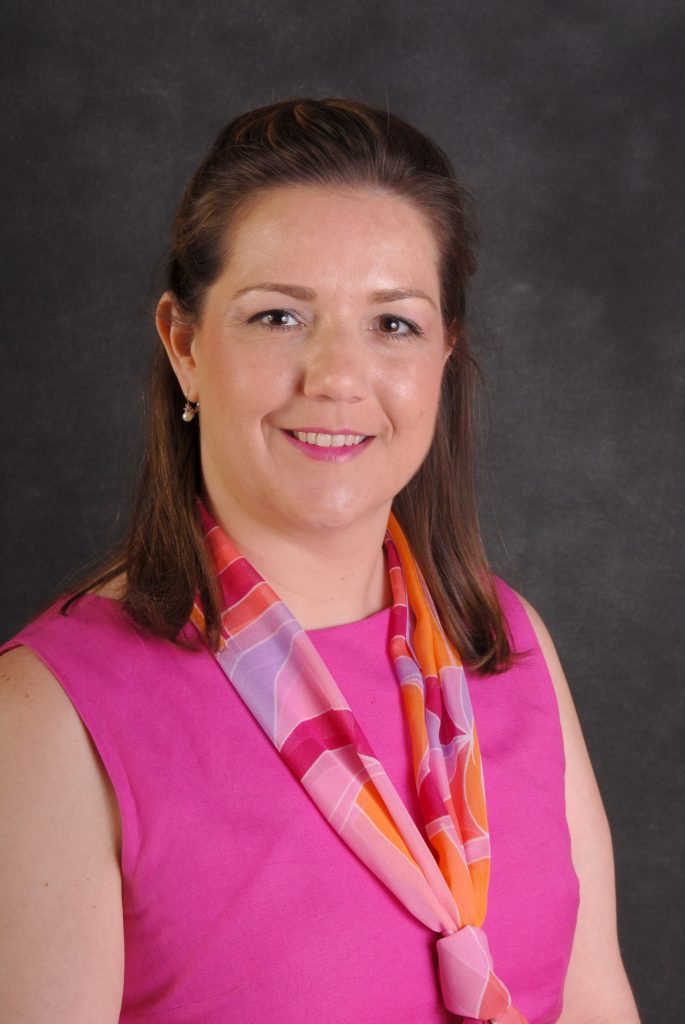
Kathleen M. Burch
Professor Burch joined the Faculty of Atlanta’s John Marshall Law School in 2003, where she teaches Constitutional Law I and II, Civil Procedure I and II, Civil Liberties Seminar, Education Law, Legal Drafting, Remedies, and Trial Advocacy. Professor Burch co-chairs the law school’s Equity, Diversion, and Inclusion Committee and has served as the Associate Dean for Academic Affairs.
Most recently, Professor Burch was named Chief Legal Counsel to The Fourth Constitutional Convention of the Federated States of Micronesia where she provides legal counsel to the Convention President, Delegates and Secretary, assists in drafting proposals and Committee Reports, and represents the Convention in litigation before the FSM Supreme Court.
Professor Burch has partnered with Georgia Legal Services to train law students to provide representation to Georgia public school students in disciplinary hearings and related matters. Professor Burch is legal and policy advisor to Gwinnett SToPP, a parent-driven, community-centered coalition focused on dismantling the school to prison pipeline. Professor Burch has served as the Vice President of the ACLU of Georgia’s Board of Directors, co-chair of its Legal Committee, and served as Interim In-House Counsel. She has also served as a member of the National Association of Women Lawyer’s Committee for Evaluation of Supreme Court Nominees.
Professor Burch chairs Georgia’s Institute of Continuing Legal Education Annual Supreme Court Update CLE and has presented the U.S. Supreme Court update at the Pacific Judicial Council’s Biannual Conference. Professor Burch has also presented at conferences and symposia in the United States and in Pretoria, South Africa, Istanbul and Ankara, Turkey, and Nairobi, Kenya.
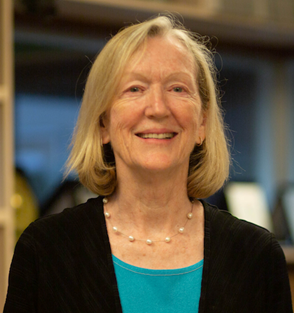
Phyllis Cox
Phyllis Cox received her B.A. from Harvard University, an M.A. in International Relations from the Fletcher School of Law and Diplomacy, Tufts University, and her J.D. from University of Denver, Sturm College of Law, Denver, Colorado. She has over 40 years of experience working in the United States and overseas, first in the practice of law in the state of Colorado, USA, with an emphasis on civil and commercial matters, as well as a significant component of family law matters. Her practice included both litigation in state and federal courts and transactional work. Since 1996 she has worked overseas in international development and has also taught law in universities in Turkey and Cambodia. Her international development experience has focused on advancing rule of law, legal and judicial reform, human rights, access to justice and legal aid, anti-corruption, and strengthening civil society, as well as on institutional development and capacity building. She has worked in a broad range of countries and contexts, including, without limitation, Cambodia, Haiti, Guyana, Liberia, Afghanistan, Bangladesh, the Philippines, the Democratic Republic of Congo, Rwanda, Ghana, and Libya. She obtained her TEFL Certificate at Via Lingua, Istanbul, later returning to Istanbul to teach at BAU during the academic year 2013-2014. Since then she has returned to hold Legal English classes and to speak on various subjects, including on the admissibility of illegally obtained evidence in criminal proceedings in courts in the US throughout the country’s history. Most recently she participated in the preparation of IGUL’s Transnational Law Week and now serves as International Relations Coordinator with IGUL.
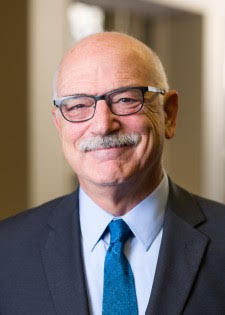
Eric Janus
Eric Janus served as President and Dean of William Mitchell College of Law from 2007-2015. During that period, he initiated and led a successful $25 million campaign, and the school established an Indian Law Program and Center for Law and Business, obtained permission from the American Bar Association to establish the first hybrid online/on-campus J.D. program among ABA-approved law schools, and negotiated an agreement to combine with the Hamline University School of Law to create the Mitchell Hamline School of Law. He was named one of the “25 Most Influential People in Legal Education” by The National Jurist in 2015 and 2016. In 2018, he received the 22nd Annual Earl Larson Award from the American Civil Liberties Union of Minnesota, for his “lifelong commitment to justice and civil liberties work.”
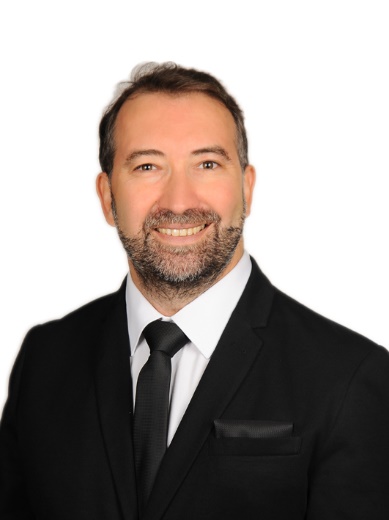
Zafer Kahraman
Zafer Kahraman serves as Vice Dean of Bahcesehir University Law School. He is working as Associated Professor on Civil Law and Law of Obligations. He finished his LLM in 2007. He became assistant professor after finishing his PhD on Private Law in 2013 and associated professor after his habilitation in 2019. He wins the prestigious Caga Law Award with his book on on Oligopolistic Interdependence and Competition Law in 2008. He published books on Assumption of Obligations (2013), Simple Guarantees (2017) and many articles on Law of Obligations.
Submission of Papers
Papers from this Conference will be published in The John Marshall Law Journal. Articles must be finalized and submitted by midnight March 1, 2021.
Papers relevant to the issues to be discussed at the Conference and responses to presenters may be considered for publication. Acceptance for publication of any paper, proposal, or response to a presenter is at the sole discretion of The John Marshall Law Journal, its Faculty Advisor, and the Conference Committee. Articles will be peer reviewed. Articles and Responses must be submitted by midnight March 1, 2021.
Submissions must be in a Word Document sent to conferencepapers@johnmarshall.edu
Questions? Please email Phyllis Cox at pcox@johnmarshall.edu or Hasan Can Bekci at hasancan.bekci@law.bau.edu.tr.

